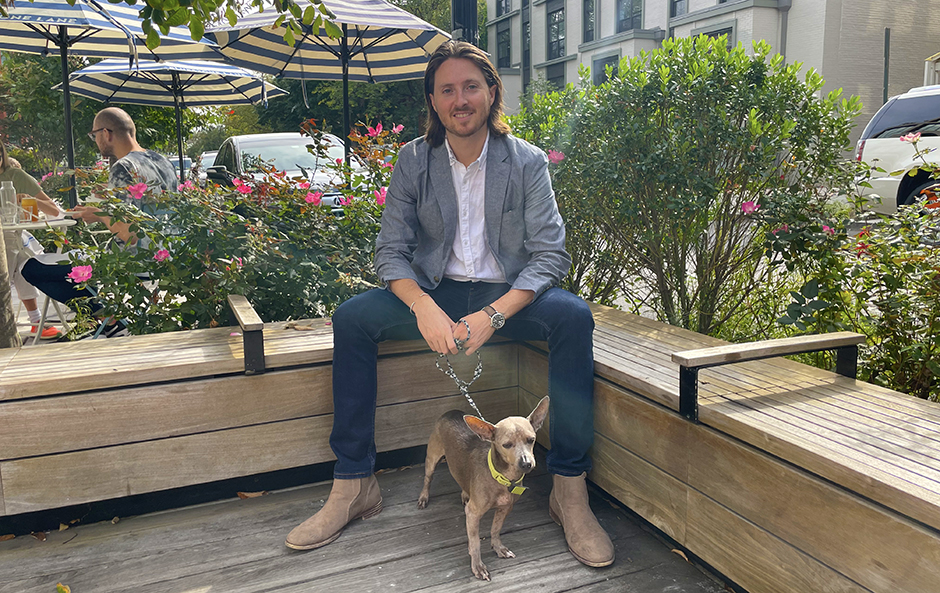Choosing the right graduate program can be a tedious and challenging process. Just ask University of Miami alumnus Jesse Kornbluth. Torn between choosing a graduate program at UM or New York University, Kornbluth, who is currently based in Washington, D.C., decided to continue his academic career in the Sunshine State.
“Truth be told, I decided to attend the University of Miami because I was looking for a vibrant, diverse, international campus environment and an individualized course of study and felt that UM offered the best experience for me,” says Kornbluth, who earned a B.A. in sociocultural anthropology with a focus in global health from Boston University and graduated from UM in 2016 with a Master of Arts in International Administration (MAIA) degree from the College of Arts and Sciences.
Before enrolling in the MAIA program, Kornbluth, an experiential learner, decided to visit the Coral Gables campus to explore the program in person, a decision he says helped him solidify his choice in picking the right graduate program.
“While visiting campus, I was able to meet faculty, administrators, and students as well as attend courses offered in the MAIA program,” recalls Kornbluth. “From day one, everyone at the U was welcoming and responsive to my questions about the program and the University. They treated me like a member of the family.”
Kornbluth’s career path lies in international relations, social impact, public policy, and global health initiatives. Before attending UM, he worked for a variety of small but impactful international non-profits in health care, primary education, and refugee resettlement, as well as in private sector strategic communications. When considering graduate programs and mapping out long-term career goals, Kornbluth was looking to hone his leadership and cross-cultural communication skills, and he says the MAIA program was the perfect fit to achieve these goals.
“MAIA provided me with me a practical, comprehensive educational experience,” says Kornbluth. “When I started, I had a broad set of interests in the realm of international affairs and was unsure where that would lead after my degree. The faculty and coursework helped me identify areas of interest and pursue my studies accordingly.”
During and after graduate school, Kornbluth discovered that he did not necessarily have to choose one path, but rather, he has been able to employ a dynamic, international skillset to make an impact in any organization he joins.
Kornbluth says that he especially enjoyed the international business and management courses in the MAIA program, which came as a surprise to him. “Some of my favorite courses were taught by Dr. Bradford McGuinn, Ambassador-in-Residence Paul Trivelli, Dr. Joseph Ganitsky, and Dr. Dina Moulioukova, all of whom provided valuable mentorship in addition to their deep scholarship,” he adds.
While in the MAIA program, Kornbluth also worked full-time running international programs for Global Medical Training (GMT). He was responsible for the operation of rural health clinics in Latin America and India with local physicians and student volunteers from North American pre-medical and medical university programs. During breaks between semesters at UM, Kornbluth led the launch of new GMT operations in India and Peru. On the weekends, he bartended in South Beach. “I had the quintessential Miami academic experience,” recalls Kornbluth.
“While in school and working remotely for GMT, I was able to take what I learned in the classroom and apply it directly to my work with GMT, and vice versa,” he adds.
During his time at the Brookings Institution, Kornbluth served in a variety of roles, most recently as a development manager in the Foreign Policy program. At Brookings, he worked on projects and international collaborative initiatives aimed to create more effective American foreign policy with the goal of fostering a more open, democratic, and equitable international order.
Outside of work and study, Kornbluth has kept himself busy doing what he loves the most, traveling and photography. Several of his photographs were featured in a Vice News documentary on the 2020 racial justice protests in Washington, DC. Currently, he sits on the board of the Sundara Fund, a women-led, nonprofit organization that provides mentorship and financial support to female social-impact entrepreneurs who live in low- to middle-income countries.
He has also guest lectured for Dr. Moulioukova’s international relations courses and regularly participates in panel discussions with other UM alumni, offering career and academic advice to undergraduate and graduate students. Kornbluth enjoys the collaborative campus environment and has always enjoyed mentoring younger colleagues and students.
“Whether near or far, I will always remain an active member of the University of Miami’s global community. Eventually, I would love to come back to the U to lead international programs and teach. I would not be where I am today without my classmates, professors, and mentors at the U,” says Kornbluth.

